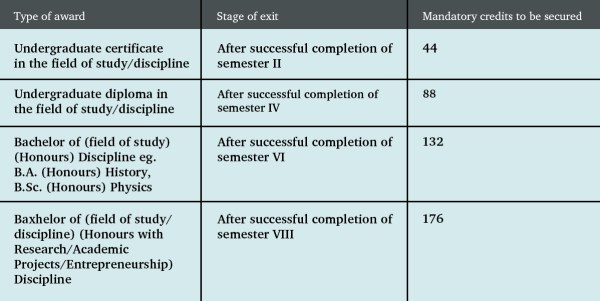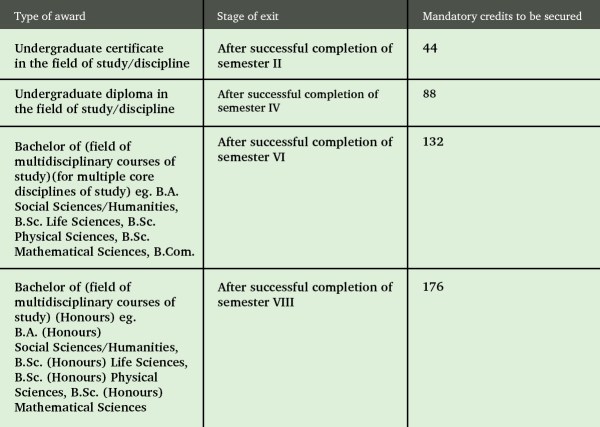[ad_1]
Students admitted to Delhi University (DU) in the 2022-’23 academic year will be the first batch to study the four-year undergraduate curriculum prescribed by the National Education Policy (2020). DU is the first central university to adopt the same. The new framework finds structural similarities with the university’s four-year programme launched in 2013 but scrapped the same year.
A deep-dive into the four-year structure, specifications, exit-options and DU’s framework set to be adopted in the upcoming session:
Features of the curriculum under the four-year curriculum
The university’s NEP Implementation Committee (NIC) recommended that the pre-existing undergraduate programmes – Honours and Programme – will continue with “alterations to nomenclature and structure”.
The university, therefore, designed two structures in line with the distinction between a honours degree in a single discipline and a multidisciplinary degree. Both the formats of degrees will have multiple exit options, giving students the option to leave after the first, second, third or fourth year.
The criteria: a certain number of credits specific to each exit option, which the student must secure.
The single-discipline programme’s structure:

The multidisciplinary programme’s structure:


Do single-discipline programmes mean studying just one subject?
No, the structure mandates that all students studying a course in the structure should opt for at least four elective papers from other disciplines during the course of the four years. Additionally, students can also be awarded a Minor in a separate discipline by choosing related electives and earning 28 credits in it over four years. For example, a student may be awarded B.A. (Honours) History with a Major in History and a Minor in Political Science, for example, if they meet the credits criteria.
What is the syllabus for each year?
As the university is now only in the process of finalising the syllabus of the first semester syllabus for the various programmes, students do not know which subjects they will study in the course of the four years yet.
Consequently, at the time of admission, students will only know the details of the first semester. The university will continue formulating the syllabus for the remaining semesters –- a move criticised by elected members of the university’s standing committee on grounds that it is detrimental to the interests of students and to the process of syllabus preparation.
Compulsory Courses under the programme
All students will have to study “Environmental Science and Sustainable Development” courses I and II in the first and second years. They will also need to choose one of the languages listed in the Eighth Schedule of the Constitution in the first two semesters.
The additional fourth year’s components
In the two semesters in fourth year, students will have to choose three elective courses either from a specific discipline they have chosen or others. A bulk of the credits in the two semesters is from the dissertation or academic project/entrepreneurship, the choice remaining with the students. The dissertation can be on a topic related either to a student’s Major or Minor.
The structure makes a distinction between a dissertation and an academic project, with students who opt the former getting the ‘Bachelor of Field of Study (Honours with Research) in (Discipline) degree such as B.Sc. (Honours with Research) Physics and students choosing an Academic Project getting an Honours with Academic P
!function(f,b,e,v,n,t,s)
{if(f.fbq)return;n=f.fbq=function(){n.callMethod?
n.callMethod.apply(n,arguments):n.queue.push(arguments)};
if(!f._fbq)f._fbq=n;n.push=n;n.loaded=!0;n.version=’2.0′;
n.queue=[];t=b.createElement(e);t.async=!0;
t.src=v;s=b.getElementsByTagName(e)[0];
s.parentNode.insertBefore(t,s)}(window, document,’script’,
‘https://connect.facebook.net/en_US/fbevents.js’);
fbq(‘init’, ‘444470064056909’);
fbq(‘track’, ‘PageView’);
[ad_2]
Source link


